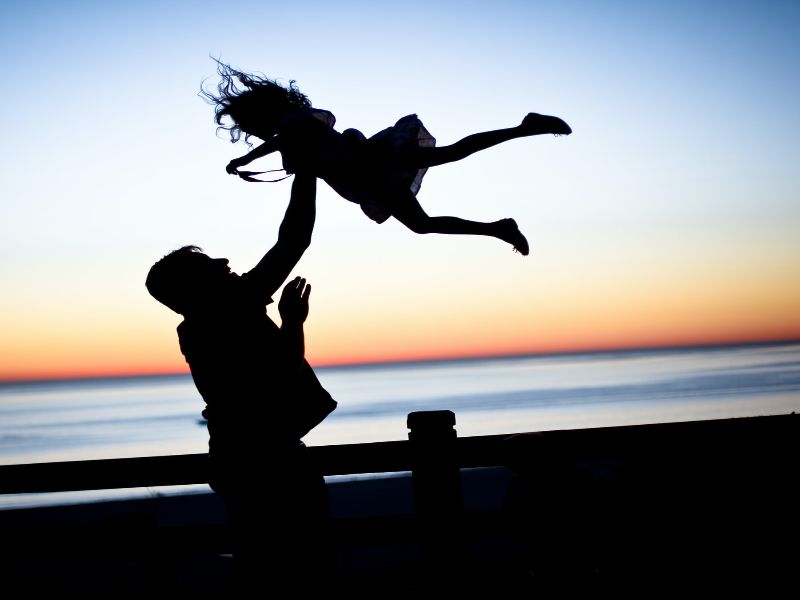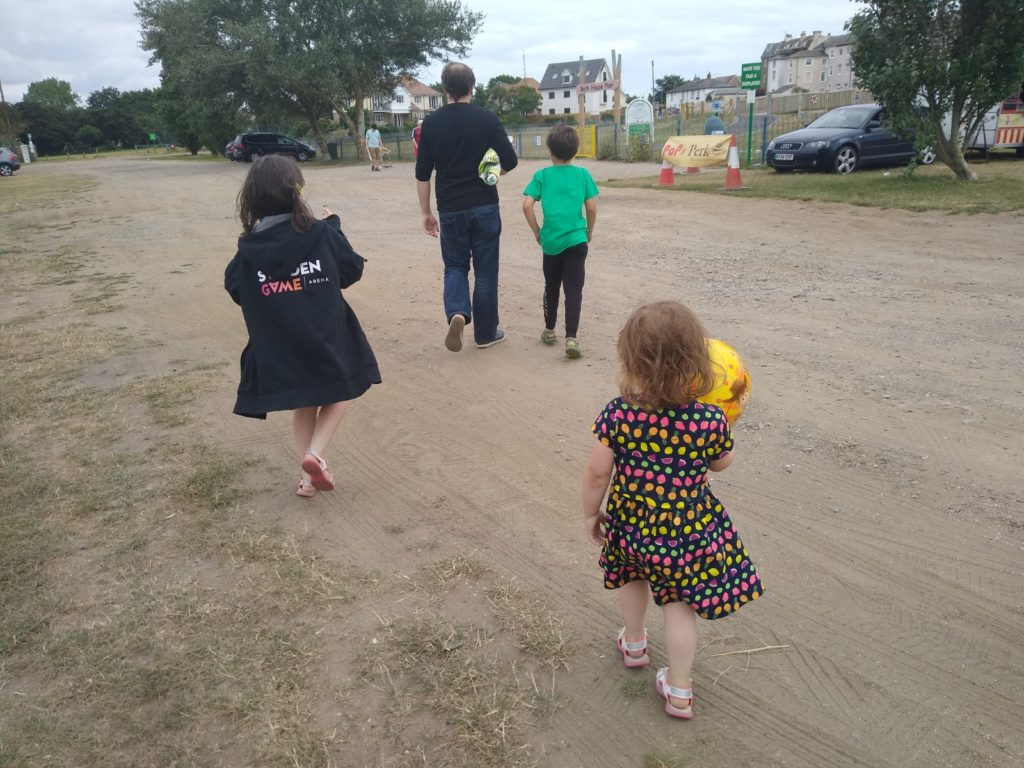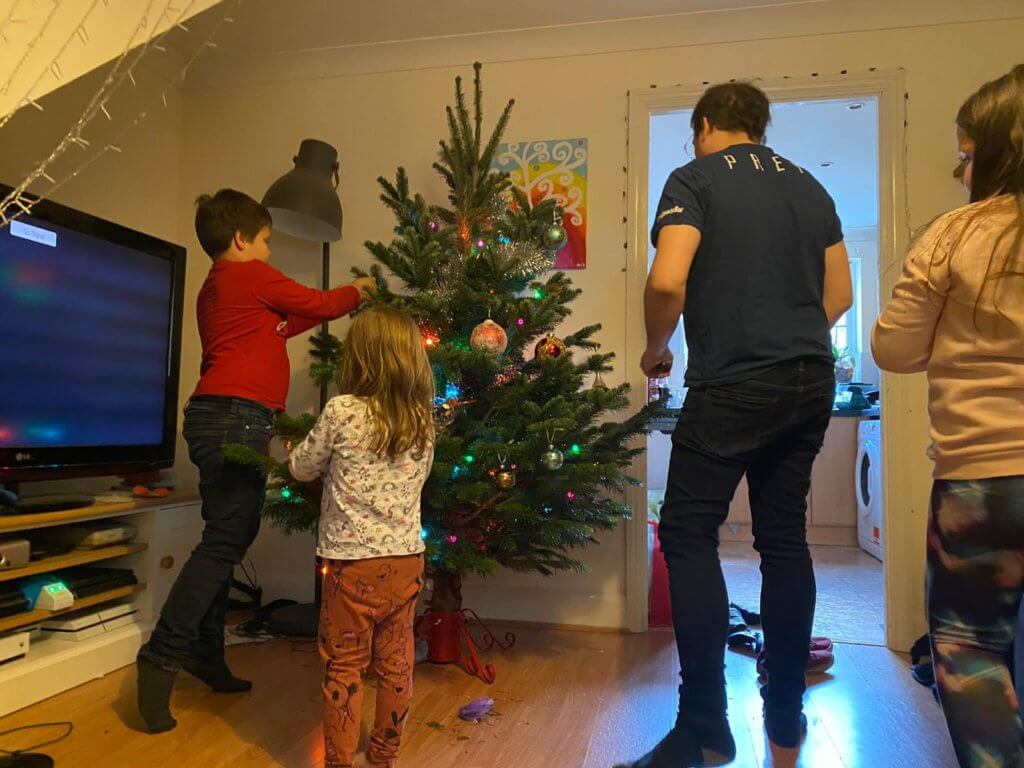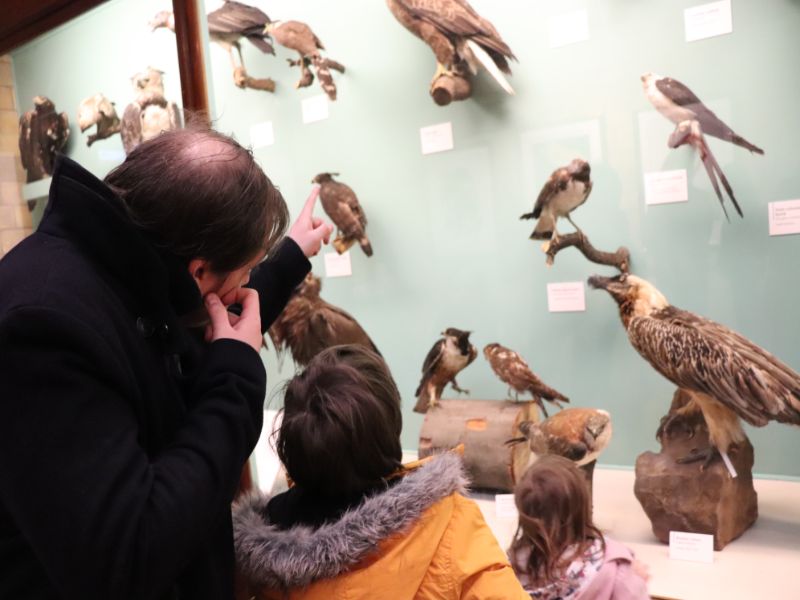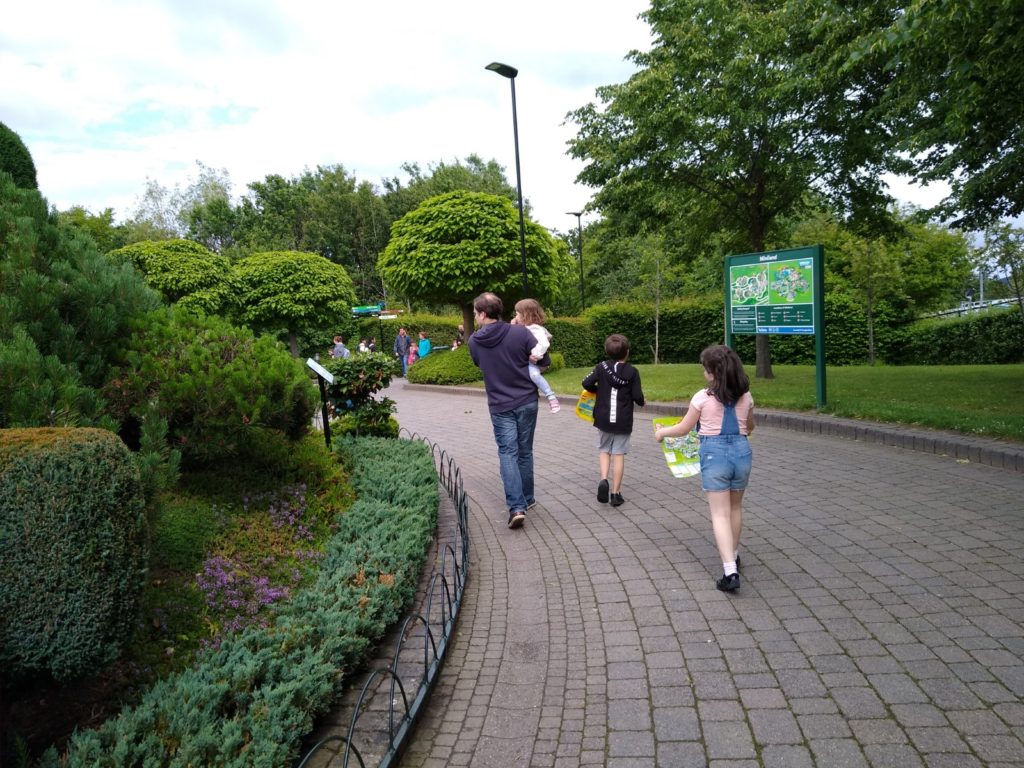Every year it feels like there are more and more national, or international, days. Single Parents Day is an interesting one because from person to person the definition of a single parent varies quite drastically. I don’t normally use the blog for much more than reviews or days out, as I’m quite a busy person, but this felt like a really good opportunity for me to talk about some of my experiences over the last few years. I’ve got three children, and they live between two homes. While they’re here I’m lucky enough to have my partner, Jupiter, helping me out – and she helps out a lot. So, in many ways, I don’t ‘parent alone’, but by some people’s definition, I’m a single parent.
The classic view of the role of a parent has changed a lot over the years. When I was at secondary school only one kid in our friend group had separated parents, and it seemed like a really rare thing. There was always a stigma around people separating, especially if they had children, and the general consensus was to keep muscling on in the relationship regardless. But at times that is the equivalent of telling somebody with a broken arm to “suck it up”. It turns out that divorce before 1900 was incredibly uncommon, with less than 1000 in a year in the 140 years before that. However, there was a big ol’ peak in that after WWII ended, and then it became incredibly in vogue through the 60s and 70s. Despite over 100’000 annual divorces (in the UK) since 1972, there was still a big stigma around couples separating. But, having a child or being in a relationship isn’t synonymous with marriage.
Research over on OurWorldInData reports that in 2011, 10.7% of UK households were single-parent, a category defined as being a household where only one of the child’s parents lives. I fall under this category as a parent, but – effectively – as does my own mother, as my sister and brother still live at her house and she separated a few years back. So, no matter how alone you might feel as a single parent, it turns out that over 1 in 10 of the houses you’ll walk past will have a single parent living inside.
There’s a lot of reasons why these stats are on the increase. Naturally that divorce figure from the end of WWII stands out, perhaps for the wrong reasons, and then a resurgence, when the children of those divorcees reached adulthood too, infers that it might be something that the conflict put into the UK folk. This likely isn’t the case though. With the end of WWII the world started getting smaller. Not in some sort of conspiracy theory manner, but in the way that communications worked. That was 80 years ago, but after the war, even before nations recovered, the global infrastructure massively changed – more people could and would travel, not just from country to country, but in many cases from beyond their hometown. So many people had been displaced, and motor vehicles had become more popular, that suddenly people could travel further afield – people were no longer stuck in the same village for all of their life, marrying their childhood best friend and then going everywhere together. Instead, people were meeting random people, and taking chances on relationships before they knew each other better. Fast forward a few years and we have the internet, dating apps, the whole lot.
But, the pace of the world has changed as well. People change as they age now, and you might get into a relationship with somebody when you’re young, make some big life decisions and then the pace of the world, the stress of wars and politics, and having almost unlimited information at your fingertips, can change, twist, bend and break people. Some people, over time, sour as well. And with that a hostile environment can grow at home. Where, many years ago, people might have tried to bottle that up for tradition, society now definitely allows us to talk about abuse, bad relationships and more publicly – its easier for people to see when something wrong is going on, and easier for people to decide that they’ve had enough of it.
The fact is, not all relationships work, and if a relationship isn’t working then it can be really harmful to the children of the relationship. Children never want to see people hitting each other, or swearing or shouting at each other. Children just shouldn’t be exposed to that, they should live in a loving environment where people are not only loving to them, the children, but to each other. If that isn’t there then how can they learn to talk about their feelings, or feel comfortable? Surely they’re doomed to repeat their parents mistakes if they’re given a really hard childhood?
Being a single parent doesn’t mean you have to be a single parent though and definitely doesn’t mean you have to go it alone. It’s really hard to do everything as just one person, and a second person around – be that a partner, parent, or just a friend – can really help by adding another perspective. In fact, while the noun ‘parent’ might refer to a father or mother of a person, the verb parent actually means to (be or) act as a parent. That latter bit is important because children are imprinted upon by almost everybody they meet in their life – for better or worse. Even beyond direct benefits, like helping with schooling, or helping around the house, there are indirect benefits that come from having other people around and involved in the child’s life – the support that they give to the parent in the situation is invaluable, be that emotional or through actions.
When I first became a single parent I really struggled. I’ve always worked, regularly more than 40 hours a week, so while I’ve always been a great dad, I’ve not always been at home when the children were. I managed to pivot to working from home, and for that I’m incredibly grateful, but suddenly, even though time with the children decreases in some ways, the role as a parent more than doubles. This is probably even harder in messier break-ups. As a single parent you not only have to be your children’s best friend, and everything you were before, but you need to redouble that and become a major emotional support – there are zero instances where a separation isn’t traumatic to children. It’s a massive change in life and situation, akin to moving to a different country.
I found myself reaching out to friends who also had kids, having more conversations about parenting and raising children with family and discussing childhoods with my partner, Jupiter – my biggest support. No single child is the same, but after a separation, they all need somebody to talk to. In my case professionals were not available, I reached out to the schools, to child services, to CAFCASS and more, and was informed that there are no child counselling services that they can offer to children, as it turns out, there’s also still an institutionalised stigma against male parents who are interested in parenting children after a separation. That said, in time, I did manage to get a GP to start a referral process, but only after I brought the child into the appointment to speak for themselves. As a result of the lack of government/local support, I needed to establish new layers of trust with the children, and create a place where they could talk about their emotions and how they felt. There’s no secret to this, you have to be a good parent, you have to support them, you have to listen to them, and you have to respect them. All of that is much easier if you have people by your side – ideally if it’s through choice rather than obligation.
What I would say, for newly separated fathers, is that there are plenty of groups out there, many on Facebook, which are filled with tomes of advice that I wish I had access to when I was fresh to the situation. Their collective knowledge would have made things a lot easier than they were, and prepared me for some of the things which blindsided me over the years.
There’s no big solve out there for how to be a good parent, or how to be a good single parent. But, it’s clear from the statistics earlier that there’ll be more and more single parents out there soon. Maybe that’s for the best, as separated parents are better than living with parents who are in a terrible relationship. All I know is that I’m grateful that I have the support of my friends and family around me, and that my children have that support too. The last few years have shown me that I, myself, am a lot stronger than I thought I was – and they have allowed me to give my children the life they deserve. Although it’s not an ideal situation – being a single parent – in many ways their lives have benefited from it, and that is what matters at the end of the day; those children who are affected.

